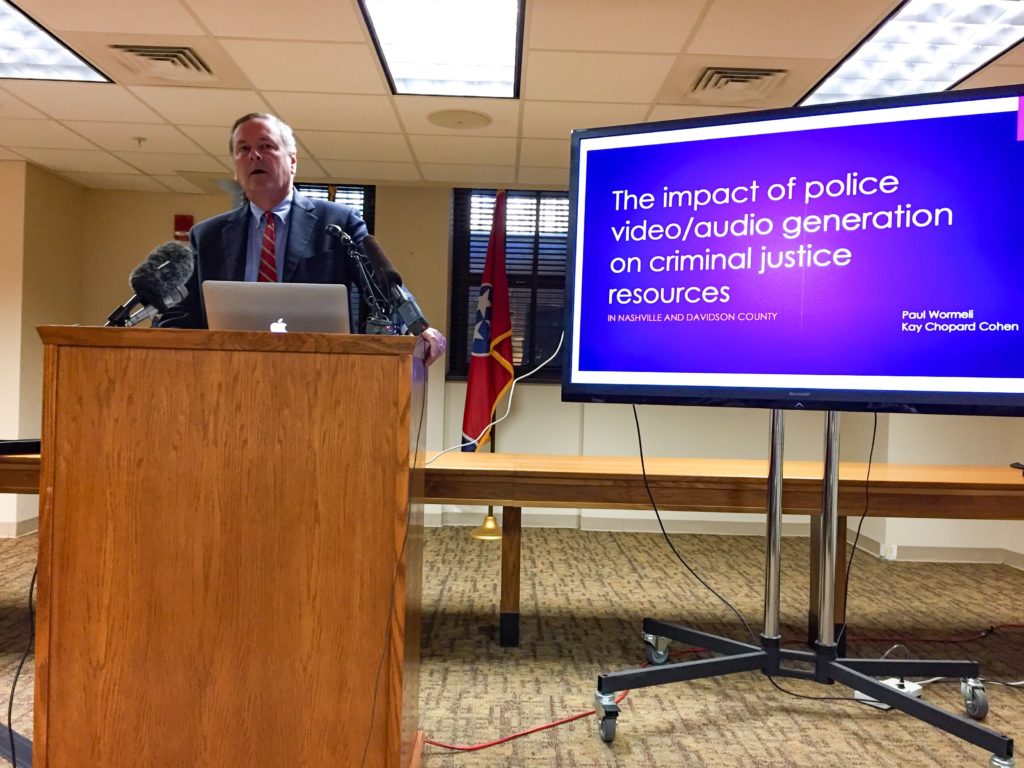
There’s yet another delay in Nashville’s long-awaited body camera program.
New budget estimates are out, and they reveal even more unexpected costs. That’s expected to push back widespread rollout of cameras, which were first announced by Mayor Megan Barry, out even longer.
The dollar signs add up quickly when you equip a police department with body cameras.
First, there’s all the technology needed to store and share the footage. Then, there’s the labor to analyze those recordings and edit out sensitive information. Plus, several criminal justice agencies need access — the district attorney’s office, the public defender, the courts.
The price tag will be steep. Tens of millions of dollars a year steep.
But Davidson County DA Glenn Funk says that’s the cost of transparency.
“We have to do this right,” Funk said at a public presentation on Monday. “If we underfund, then we create delays in a criminal justice system, and victims and defendants have their right to justice delayed. We put victims and witnesses at risk if we underfund this system.
“Underfunding will undermine criminal defense in this city. And worst of all, it could erode public confidence in law enforcement.”
Two consultants hired by Funk laid out the cost using a complicated formula splayed across a projector screen in the basement of the Metro Courthouse. Their funding equation factors in variables like how much footage police would record annually and how much time it would time it would take for a trained set of eyes to review and redact that footage.
Each decision to store more video would drive the price higher. But Bob Mendes, the chairman of the Metro Council’s budget committee, says he doesn’t understand why these questions haven’t already been worked out.
“It’s the executive branch’s job – the police department, the mayor’s office – to get a reasonable rollout, and here we are, a couple years later, hearing, ‘Oh, yeah, there’s a bunch of costs nobody’s talked about yet,'” Mendes says. “It’s just really frustrating to understand where we are in the process and what the total price tag is going to be.”
And as the added expenses continue to roll in, Mendes says he’s not sure where the Metro Council will find the money to pay for it all.
“At this point,” he says, “I’m hoping for an oil well discovered underneath the convention center.”
However, Mendes says deploying the body cameras in stages will buy the city some time to work through the numbers. And the timeline for the rollout has been postponed multiple times already.
When the police department signed a contract with a vendor in late August, former Mayor David Briley’s office told WPLN the new technology could be deployed as early as late September.
Now, Metro’s police chief says he hopes to see the first officers wearing body cameras by the end of this year.
Samantha Max is a Report for America corps member.


